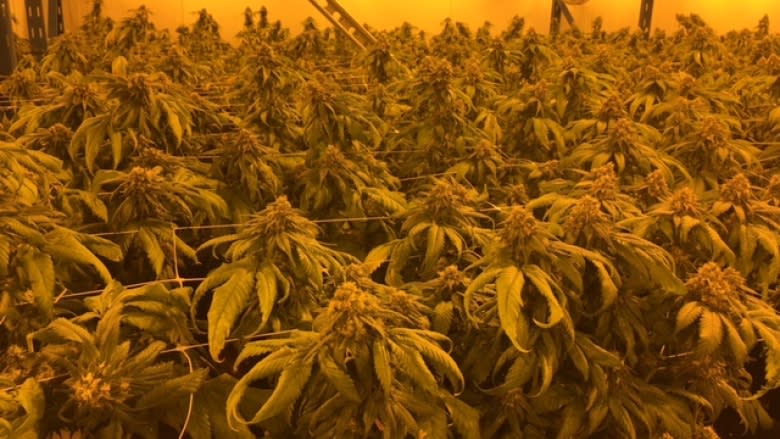Organigram plans expansion after working to regain customers' trust
The chief executive officer of Organigram Inc. says after working to regain the trust and confidence of physicians, clients and investors, the planned expansion of its marijuana-production plant in Moncton will go ahead this year.
CEO Greg Engel said the plant will go from producing 6,200 kilos of medical marijuana to 16,000 kilos by the end of 2017. A second expansion in 2018 will increase production to 26,000 kilos.
Engels confirmed part of the expansion in being made in anticipation of the federal government's plan to legalize marijuana in Canada by next July.
Both expansions come after the company lost its organic classification and customer's trust after issuing voluntary recalls of almost all of its products sold last year after residual levels of unapproved pesticides were found.
Organigram Inc., located in Moncton, faces a proposed class-action suit as a result.
Engels said to regain that trust, the company has adopted a seven-step initiative that focuses on increasing the quality of the product, including a pre-release process.
"Before we package product, before we release it doing testing for pesticides and doing comprehensive testing, testing of live plants and testing of input materials, etc."
Produce safely
Engel said the company's mantra is to produce its products safely.
"When clients come to the site to look to order products, they will be able to see the certificate analysis to validate that the test data has been done."
The CEO said this will allow customers to feel confident the product is safe and there will be no recalls in the future.
"That's our internal mantra," Engel said.
Testing is being done by an outside lab accredited by Health Canada which also recently renewed Organigram's licence.
"That's an important step from a renewal perspective of making sure Health Canada's comfortable with the changes we've put in place to meet those safety criteria."
Engel said part of the renewal process included increased inspections by Health Canada.
"We worked closely with them to show them the plan that we put in place."
Regain certification
Organigram is also working to regain its organic recertification with Eco Cert. Engel said a plan has been submitted to have a section of the plant dedicated to producing organic marijuana and a section that produces non-organic.
"We hope to and we expect to have organic recertification within the next couple of months."
The organic certification was suspended in January after residual levels of two unapproved pesticides — myclobutanil and bifenazate — were found in its products.
When burned, myclobutanil produces hydrogen cyanide, which interferes with how oxygen is used in the body and can cause headaches, dizziness, nausea and vomiting.
While Engels said there are recalls with many products, Organigram has taken steps to ensure it doesn't happen again.
"We've increased the level of scrutiny and the level of testing that we do ensure there is a safe product out there that clients can feel comfortable and confident [using]."
Engels said since the safeguards have also made physicians feel confident again about referring patients.
While Organigram Inc. still faces a proposed lawsuit, Engels said the company's main goal is ensuring the problems don't happen again.
"That's critical for the company at this point."



